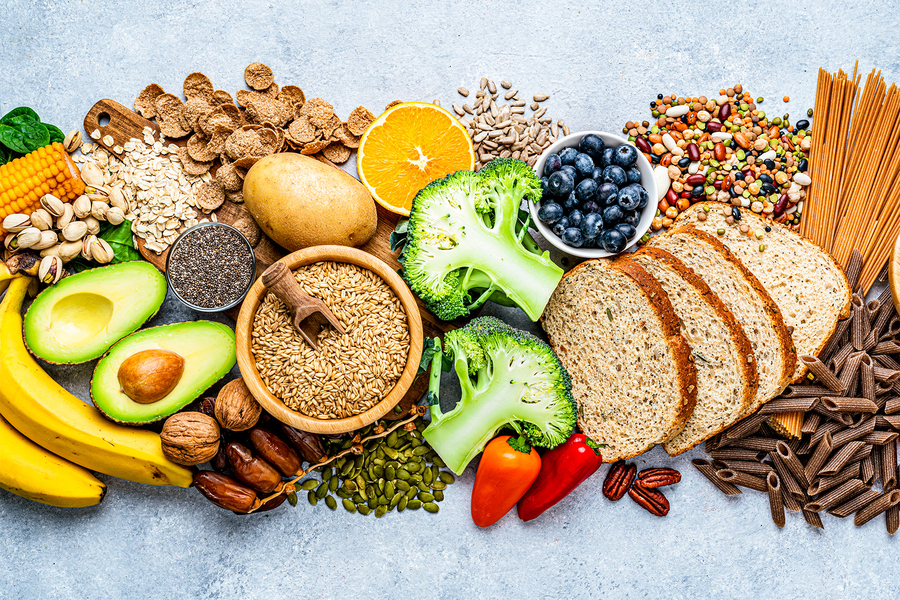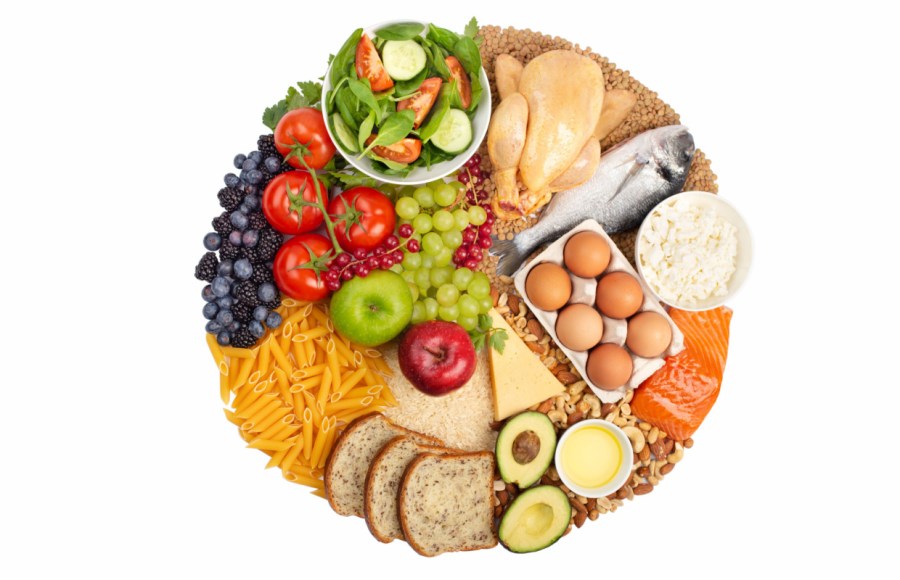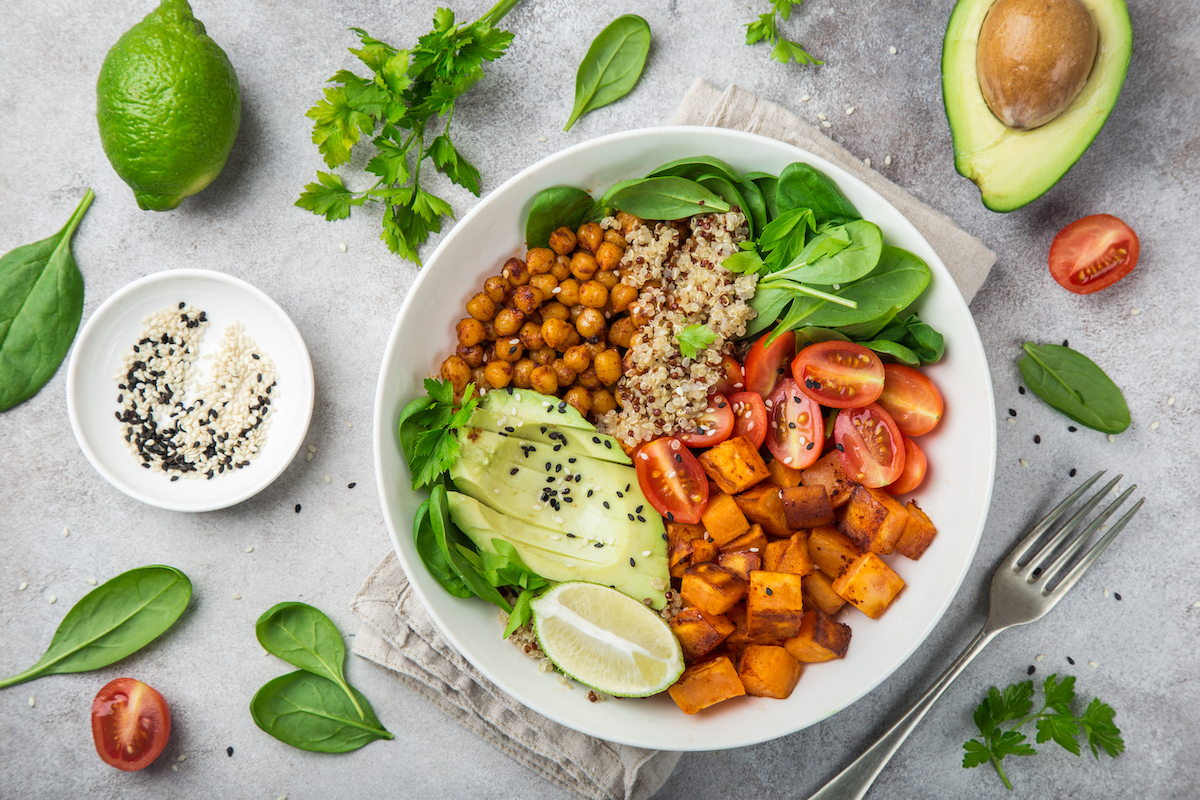Searching for a sound fresh new goal for 2023? On the off chance that you could work on your eating regimen in one stage, eating more plant-based food sources would be at the first spot on the list.
Natural products, vegetables, entire grains, nuts, seeds and vegetables are wealthy in phytochemicals, which might assist with battling malignant growth and coronary illness. They're additionally brimming with fiber to cause you to feel full and supported, which can assist with weight reduction.
"The mix of fiber and phytochemicals from entire plant-based food sources that are supplement thick and satisfying autonomously affect things like cholesterol and circulatory strain," Maya Vadiveloo, collaborator teacher of sustenance and food sciences at the College of Rhode Island, tells TODAY.com.

Individuals who most intently follow plant-based slims down appear to be safeguarded from passing on rashly from constant sicknesses, a survey of studies distributed last year found.
Be that as it may, most Americans actually don't eat sufficient plant-based food sources, specialists noted.
"Sadly, a great deal of the unfortunate food varieties out there taste great, and furthermore those will generally be what's generally helpful," says Alexis Supan, a dietitian at the Cleveland Facility Community for Integrative and Way of life Medication in Lyndhurst, Ohio.
"It's super, truly simple for me to run out and get a hamburger and French fries at the present time. It's not as simple for me to run out and get a solid plate of mixed greens or any type of delectable, sound vegetables."

You don't need to be a veggie lover or vegetarian to partake in the advantages of a plant-based diet. Here are a portion of the top decisions nutritionists eat consistently:
Benefits of Plant-Based Diet:
Health Benefits: Plant-based diets are associated with a wide range of health benefits. They are naturally low in saturated fats and cholesterol, which can reduce the risk of heart disease. They're also rich in fiber, antioxidants, vitamins, and minerals, which support overall health and reduce the risk of chronic diseases such as diabetes, certain cancers, and obesity.
Weight Management: Plant-based diets can be effective for weight management. The emphasis on whole, unprocessed foods and the high fiber content help you feel full and satisfied, making it easier to control calorie intake and maintain a healthy weight.
Environmental Sustainability: Plant-based eating is more environmentally sustainable. It reduces the demand for natural resources, such as land and water, and reduces greenhouse gas emissions. Choosing plant-based options helps combat climate change and promotes a more sustainable future.
Ethical Considerations: Many people adopt plant-based diets for ethical reasons. They align with values related to animal welfare, compassion, and reducing harm to animals. Choosing plant-based foods supports a more humane and compassionate way of living.
Culinary Variety: Plant-based eating encourages culinary creativity and variety. With a wide array of fruits, vegetables, grains, legumes, nuts, and seeds at your disposal, you can explore diverse flavors, cuisines, and cooking methods.
Digestive Health: High-fiber plant-based foods promote healthy digestion and gut health. They can help prevent issues like constipation and promote a diverse and beneficial gut microbiome.
Reduced Inflammation: Plant-based diets are often anti-inflammatory, which can help reduce the risk of inflammation-related health issues and chronic conditions.
Budget-Friendly: Plant-based staples like beans, lentils, rice, and whole grains are often more budget-friendly than meat and dairy products. Adopting a plant-based diet can be cost-effective and reduce grocery expenses.
Is Plant-Based Diet Vegetarian?
A plant-based diet is similar to a vegetarian diet in that it places a significant emphasis on foods derived from plants. However, there are distinctions between the two:
Vegetarian Diet: A vegetarian diet excludes meat, poultry, and fish but may include other animal products such as dairy (in the case of lacto-vegetarians) and eggs (in the case of ovo-vegetarians). Some vegetarians, known as lacto-ovo vegetarians, include both dairy and eggs in their diets.

Plant-Based Diet: A plant-based diet focuses on foods primarily sourced from plants, with an emphasis on vegetables, fruits, legumes, whole grains, nuts, and seeds. It typically minimizes or excludes animal products, including dairy and eggs, although it may not necessarily eliminate them completely. A strict plant-based diet, often referred to as a vegan diet, excludes all animal products entirely.
Conclusion:
Integrating plant-based eating into your routine doesn't need to be a win big or bust try. You can continuously change, beginning with a couple of plant-based feasts each week and investigating new fixings and recipes. Whether you pick a completely plant-based diet or just expect to consolidate more plant-based dinners, it's a positive and proactive move toward a better, more feasible, and merciful approach to eating in the New Year.
Frequently Asked Questions!
Do potatoes count as plant-based food?
What counts as a 'plant' food? Basically, everything that comes from a plant! Fruit and vegetables all count, of course (even potatoes – particularly if you eat the skin), but so can wholegrains, pulses, seeds, nuts, mushrooms, beans, herbs and spices.
What is a 100% plant-based diet?
Plant-based or plant-forward eating patterns focus on foods primarily from plants. This includes not only fruits and vegetables, but also nuts, seeds, oils, whole grains, legumes, and beans. It doesn't mean that you are vegetarian or vegan and never eat meat or dairy.
Is peanut butter a plant-based food?
Invented in the United States by Dr. John Harvey Kellogg in 1895, peanut butter contains peanuts and sometimes salt, sugar, and oil—all of which are plant-based ingredients. The peanuts are shelled, dry roasted, cooled, blanched, and ground into a paste until the desired consistency is reached.
Can I eat bread on a plant-based diet?
Vegans can eat bread that does not contain animal products or byproducts. This includes breads that only use some variation on flour, water, yeast, and salt including ciabatta, baguette, focaccia, sourdough, pita, and ezekiel breads.







